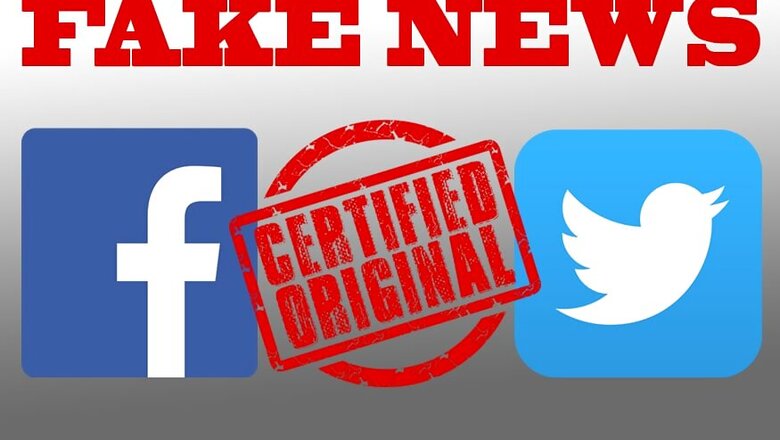
views
The internet is buzzing today with news that Mark Zuckerberg's found dead at age 42. His final wish was to stop fake news articles on the Facebook. Each time this story is shared, Facebook will donate one dollar to his son, who otherwise would live in poverty.
Well clearly he's not.
Don’t believe in everything that you read on the internet or on social media.Facebook founder and CEO, Mark Zuckerberg at a recent event in Lima, Peru admitted that fake news on social media platforms including his a growing concern. He even termed the problem as a complex one and says that Facebook has been working towards fixing it.
With more internet news sites than actual news to cover around the word, news websites are facing a shortage of content. Many arm-chair journalists use their imagination at times to put their opinion as news on the internet.
Once it starts getting shared on a social platform like Facebook or Twitter, it spreads like wildfire. The truth is always stranger than fiction, but in growing fake news cases on social media around the world it’s the other way around.
The fake news instances were prominently seen during the recently held US Elections 2016. Elections for choosing the President for the oldest democracy in the world, were mainly fought on Social Media. Many also blame the medium for Donald Trump’s unbelievable victory.
Even the current president of USA, Barrack Obama said recently that, “In an age where there's so much active misinformation and it's packaged very well and it looks the same when you see it on a Facebook page or you turn on your television. If everything seems to be the same and no distinctions are made, then we won't know what to protect."
The age of misinformation is here. And we as users of social media need to be cautious of what we share and what we believe on the internet.
Some of the biggest examples have come closer to home, after the PM Narendra Modi announced the de-monetisation initiative and banned Rs 500 and Rs 1000 currency notes.
One of the biggest misinformation that spread like fire was that the new Rs 2000 currency note has a nano-GPS chip and can be tracked. Even some of the biggest names in TV journalism believed it to be true and had Facebook videos up on their page.
Many were left with their foot in the mouth when RBI had to issue a statement that no such technology was used in the currency notes.
Politicians and political parties know the power of social media and they often tweet and share Facebook videos which are misleading and often have factual errors. Recently Delhi CM Arvind Kejriwal, tweeted a picture of a man who hung himself at a bank because he could not get money, he blamed demonetisation as the primary cause for his death. Only to realise later that it was an old picture of an unrelated incident.
Uploader Of Fake News Deleted Post After He Was Exposed. RT If You Feel Kejriwal Must Apologise For Spreading Rumor.#अबकी_दफा_केजरी_बेवफा pic.twitter.com/79puIoavH3 — Sir Ravindra Jadeja (@SirJadeja) November 20, 2016
He, however did delete his tweet, but parody accounts and trolls were quick to point out his mistake.
Another interesting instance was of a Business man in Gujarat who declared Rs 6000 crore of black money after Narendra Modi announced that Rs 500 and Rs 1000 currency notes will no longer be valid.
The biggest problem with fake news is that once misinformation goes viral, it dilutes the truth. Mark Zuckerberg says it’s a complex problem, and he’s right.
Mediums like Facebook and Twitter rely on their users to generate content. With everyone having access to social platforms, it takes less than 30 mins to register on them and start a page with any misinformation. To identify these users is also not that easy, as many websites feed on misinformation and often have factual errors.
And once anything goes viral, television channels quickly pick it up from the internet to gain some points over their competitors. The age of vetting a story is history. Anyone with a smartphone can start reporting news.
The problem rightly is complex and we as users of social media often fall prey to misinformation. To help resolve such news on social media we need to first question such stories, and then if they are found to be fake, report them. Once you click on report the administrators of the social media platforms will be able to bring such stories down.
As users of internet have to be the first responders to stop the spread of misinformation.


















Comments
0 comment